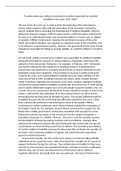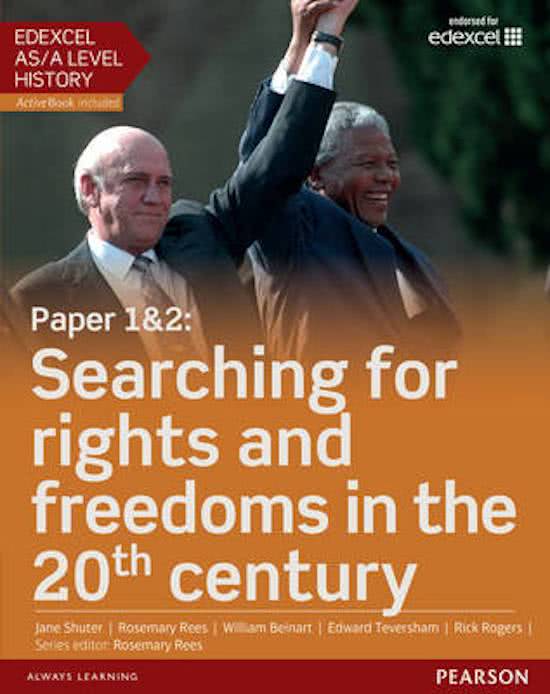‘To what extent was military involvement in politics responsible for political
instability in the years 1646-1660?’
The end of the first civil war in 1646 marked the beginning of the Interregnum
Period, which ended in 1660 with the restoration of the monarchy. During this
period, multiple factors provoked the development of political instability, which is
defined by frequent changes within the government, ineffective policy enforcement,
the lack of an authoritative leader and incoherent policies on issues such as religion
or taxation. Military involvement, meaning the prominent presence of the army
within the political situation, was arguably an important cause of this instability, due
to its influence on government actions. However, the government itself could also be
ultimately responsible for failing to provide stability, as could the influence of radical
ideas.
On one hand, military involvement in politics was responsible for political instability
during the Interregnum, because its radical influence repeatedly undermined the
authority of the democratic Parliament. For example, in February 1647, Parliament
was hastily ordered the New Model Army to disband (due to it being deemed
unnecessary and expensive to maintain) but provisions to ensure indemnity for the
disbanded troops were neglected. This provoked an increase in political demands
made by the army, and created political instability because many members of the
army also served as MPs, including Cromwell and Ireton, which created divisions
within Parliament regarding the treatment of the army. Another example of military
involvement causing political instability would be the second civil war in 1648, during
which Charles deliberately waged war on his own people using the Scottish army. As
a result, the army unanimously decided that Charles should be brought to trial for his
crimes, confirmed by the publication of an Army Remonstrance by Henry Ireton,
demanding that the King must be brought to justice. This caused additional political
instability because the fate of the King was ultimately decided by the army, rather
than a democratic parliament representing the views of the people. Military
involvement in politics continued, when General Monck assisted the restoration of
the English monarchy. For example, General Monck announced his support for the
Rump and a civilian government, and became inundated with requests for a free
Parliament and the restoration of the monarchy from the people of England: a
population desperate for stability. However, this wasn’t entirely resolved, because
the Declaration of Breda (promising harmony and reconciliation, amongst other
policies to be resolved in partnership with Parliament) did not describe any specific
commitments to which the King would have to adhere. This provided preconditions
for further political instability, because the document did not dictate the specifics of
the King’s role in restoring stability in England, and would therefore potentially
possess unrestricted power.
Somewhat ironically, the aims of the army always involved providing stability,
symbolised by the ‘good old cause’ which described their complex set of reasons to
support Parliament during the civil war. They initially desired stability for their own
security, by ensuring they were granted indemnity; and later to secure a settlement
with the King, due to their increased distrust of Parliament and its ability to
negotiate effectively. Eventually their aim was achieved, and General Monck had a






